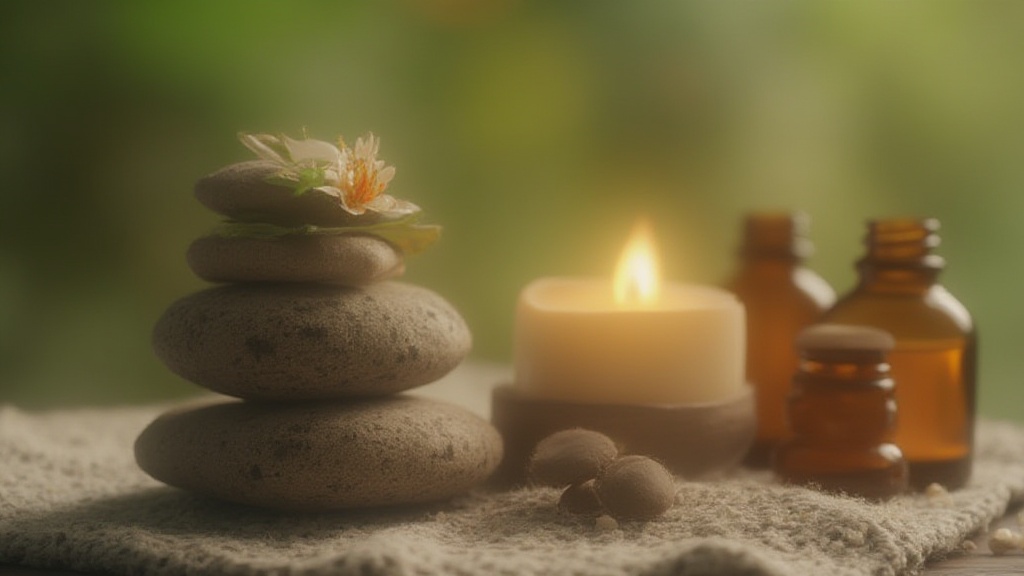
Stress affects numerous individuals, impacting both mental and physical health. Massage therapy serves as an effective solution, promoting relaxation and enhancing overall well-being.
Various techniques and styles of massage can alleviate muscle tension, improve emotional health, and foster stress reduction.
Regular sessions provide substantial benefits, facilitating resilience against everyday pressures.
This therapeutic touch activates the body’s relaxation response, thus supporting a holistic approach to stress management. The following section outlines the extensive benefits of massage therapy in greater detail.
Understanding Massage Therapy Benefits
Massage therapy plays a significant role in holistic wellness strategies tailored for stress management.
The physiological effects of massage include a reduction in cortisol levels, which are linked to feelings of stress and anxiety. This process not only enhances the body’s ability to cope but also promotes endorphin release, elevating overall mood.
The following list outlines key benefits associated with massage therapy:.
- Stress reduction: Regular sessions help lower stress hormones.
- Anxiety relief: Therapeutic techniques provide emotional support.
- Muscle tension alleviation: Physical manipulation eases tightness.
- Improved circulation: Enhanced blood flow boosts overall health.
- Enhanced well-being: Promotes a state of tranquility and relaxation.
When choosing the appropriate type of massage, consider techniques such as Swedish massage or deep tissue massage. These modalities cater to specific needs, such as relieving muscle tension or facilitating emotional release. This targeted approach ensures optimal therapeutic effects, enhancing both mental clarity and overall quality of life.

How Does Massage Reduce Stress
Massage therapy plays a significant role in reducing stress by addressing the body’s physiological response to tension. Stress activates the release of hormones such as cortisol and adrenaline, which can increase feelings of anxiety and muscle tension.
Fortunately, research illustrates that therapeutic massage effectively mitigates these stress responses, promoting deep relaxation and alleviating muscle tension.
Studies confirm that regular massage therapy leads to considerable cortisol reduction and enhances the production of serotonin and dopamine, both of which are essential for maintaining emotional health.
To incorporate massage into your daily routine, consider scheduling a simple 15-30 minute self-massage session or visiting wellness centers on a weekly basis. Utilizing home massage techniques can also amplify your stress relief efforts.
Exploring Relaxation Techniques From Massage
Different massage styles serve specific purposes in relaxation and stress reduction, effectively complementing previously discussed relaxation techniques.
Swedish massage, characterized by long, flowing strokes, fosters tranquility and improves circulation, while deep tissue massage focuses on deeper muscle layers to alleviate chronic tension. Engaging in self-massage techniques, such as neck rubs or foot massages, can provide quick relief at home.
Utilizing tools like tennis balls or massage rollers may enhance these rituals.
Integrating these massage practices into your overall wellness strategy encourages improved body awareness and emotional support, making stress management more effective and accessible.
Massage and Stress Reduction
- Research shows that massage therapy can significantly lower cortisol levels, which are associated with stress.
- Regular massage increases the production of serotonin and dopamine, hormones crucial for emotional well-being.
- Swedish massage techniques improve circulation and promote relaxation, making it effective for stress relief.
- Self-massage can provide immediate relief and can be easily incorporated into daily routines for enhanced wellness.
The Role Of Therapeutic Massage In Wellness
Incorporating therapeutic massage into wellness routines can significantly enhance preventive health practices. Regular sessions help to alleviate muscle tension, promoting both physical relaxation and mental clarity.
Studies have shown that integrating massage therapy at least once a month can lead to long-term benefits, such as improved circulation and stress reduction.
Ongoing self-care rituals, including therapeutic touch, play a key role in maintaining emotional health and overall well-being.
Scheduling appointments consistently can help individuals manage stress hormones, ultimately contributing to a better quality of life. Prioritizing these sessions in health routines supports comprehensive wellness strategies.
Muscle Tension And Stress Relief Explained
Addressing muscle tension is essential for effective relief methods.
Muscle tension often results from poor posture or increased anxiety, causing discomfort and exacerbating stress levels. Research indicates that chronic muscle tension can lead to heightened stress hormones, which negatively impact emotional health.
Integrating stretching techniques can be beneficial in combating this.
Simple stretches targeting the neck and shoulders can alleviate tension, complementing the effects of therapeutic massage.
Encouraging regular movement and mindfulness exercises also supports muscle health, leading to enhanced relaxation and overall stress alleviation. This holistic approach fosters a greater sense of tranquility.
Therapeutic Massage and Wellness
- Regular therapeutic massage sessions can improve circulation and reduce stress levels.
- Integrating massage therapy into wellness routines can enhance emotional health and overall well-being.
- Chronic muscle tension can elevate stress hormones, negatively affecting mental clarity.
- Incorporating stretching techniques alongside massage therapy can further alleviate muscle tension and promote relaxation.
Can Massage Improve Emotional Health
Research indicates that massage therapy significantly impacts emotional well-being. Physical touch, a fundamental aspect of therapeutic massage, contributes to emotional stability, fostering feelings of safety and connection.
This practice promotes a relaxation response, effectively reducing stress hormones like cortisol, which enhances overall mental clarity.
To maximize the benefits of relaxation techniques, individuals should choose a qualified therapist who specializes in emotional support through massage.
Look for recommendations from welcome centers or mental health professionals to ensure the best fit. By prioritizing the search for the right therapist, individuals can effectively harness the power of massage to improve emotional health.
The Impact Of Endorphin Release On Stress
Endorphins serve as the body’s natural pain relief mechanisms, playing an essential role in stress reduction.
These powerful neurotransmitters interact with stress receptors, helping alleviate anxiety and elevate mood. Techniques such as deep tissue massage and trigger point therapy can enhance endorphin release, facilitating a relaxation response.
To maximize the benefits of these therapeutic techniques during sessions, clients should communicate their preferences and needs clearly with their therapists.
This openness fosters a better understanding of which stress management strategies will work best, ultimately leading to improved emotional well-being and resilience against stress.
Massage and Emotional Health
- Studies show that massage therapy can lower cortisol levels by up to 30%, significantly reducing stress.
- Regular massage sessions have been linked to increased levels of endorphins, which can improve mood and reduce anxiety.
- Therapeutic massage has been found to enhance the relaxation response, leading to better mental clarity and emotional stability.
- Finding a qualified therapist can enhance the effectiveness of massage in providing emotional support and stress management.
Incorporating Selfcare Through Massage Practices
Engaging in self-care practices plays an essential role in maintaining overall health, with massage therapy recognized as an effective approach to enhance both physical and emotional wellbeing. Regular self-massage can significantly alleviate muscle tension while facilitating relaxation and circulation improvement.
To begin incorporating these practices into your routine, consider a simple self-massage routine focused on your neck and shoulders.
Start by using gentle kneading techniques; apply steady pressure for at least five minutes on each area.
This stress reduction practice not only aids in relieving soreness but also promotes mindfulness, enhancing your emotional health and mental clarity.
Simple Self-Massage Techniques
Implementing effective home massage techniques can provide numerous benefits to your wellness journey.
To enhance relaxation and stress alleviation, begin by focusing on your neck. Use your fingertips to apply gentle pressure along the sides of your neck, transitioning to a soft circular motion.
This approach encourages the relaxation response, which helps lower stress hormones, such as cortisol, and contributes to pain management.
Next, move to your shoulders; apply tapping techniques to stimulate blood flow and ease tension.
These soothing techniques can lead to a profound sense of tranquility and rejuvenation.
Regular Practice and its Benefits
Establishing a regular self-massage routine not only promotes relaxation but also enhances physical manipulation of the tissues, working to improve overall quality of life. By incorporating these techniques into your daily wellness practices, you can achieve significant stress reduction and support your holistic wellness goals.
Ultimately, consistent application of these self-care rituals can lead to improved immune function and better emotional support, allowing for a balanced and healthy lifestyle.
| Massage Benefits | Impact on Wellbeing |
|---|---|
| Alleviates muscle tension | Enhances emotional wellbeing |
| Improves circulation | Promotes mental clarity |
| Reduces stress hormones | Supports holistic wellness goals |
